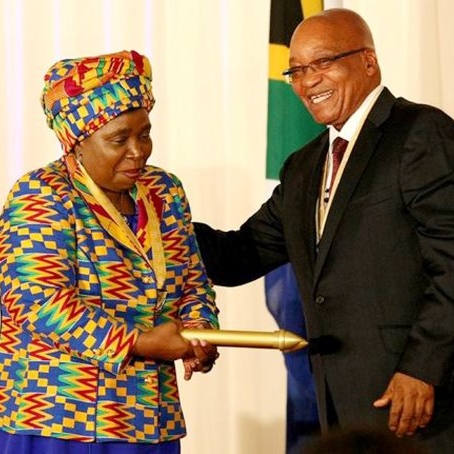
Voices

Power play and the unravelling of the ANC
DR IVOR SARAKINSKY
The fracture lines within the ANC have been evident for years. The Cabinet reshuffle by President Jacob Zuma last week, made this explicit with the dismissal of the Minister and Deputy Minister of Finance, Pravin Gordhan and Mcebisi Jonas.
Two clear camps in the ANC became explicit, taking their dispute public, with both camps competing for the heart and soul of the organisation.
Those aligned to President Zuma support his initiative of “Radical Economic Transformation”, which means using state resources and other policy mechanisms to empower black businesses, the poor and working class.
They are also invested in the leadership race for Zuma’s successor which is scheduled to take place in the December Elective Conference. Nkosazana Dlamini-Zuma, the president’s former wife, is their chosen candidate.
Supporters of this faction are closely associated with the Gupta family whose business ties with state-owned entities have received much media attention and is the subject of the Public Protector’s report, State of Capture.
The other camp supports Deputy President Cyril Ramaphosa. They publicly declare a commitment to proper public governance and democratic accountability, to grow the economy through stability and the confidence of investors.
Gordhan was particularly important in achieving these goals and his dismissal in the Cabinet reshuffle has galvanised this group into action.
As the fallout from the reshuffle intensifies, through the downgrading of the country’s investment status to junk and mass mobilisation of opposition forces and ANC alliance partners, calls for Zuma’s resignation have reached a crescendo.
A successful vote of no confidence in Parliament will result in Zuma and his Cabinet being dismissed. However, the chances of ANC parliamentarians siding with the opposition are slim. The most likely arena where this call will be played out is within the inner circles of the ANC, especially its National Executive Committee.
It is not clear how much support Zuma has in this body, but well-attended rallies around the country scheduled for this Friday might lead to a shift in the balance of power and Zuma’s demise.
This is a fight to the death for the ANC, its history, legacy and control of government. Former State President Kgalema Motlanthe has been a vocal critic of the Zuma camp. Yet Ramaphosa has been – until quite recently – politically reserved. Some commentators have criticised his alleged timidity. This is harsh as he is bound to conduct himself in accordance with the decorum of his office – an important element of the government.
Ramaphosa also has to tread a fine line as a contender for ANC leadership later this year, by not providing grounds for his removal now. A noticeable omission from the new Cabinet is Zuma’s former wife who was widely expected to receive a ministry to bolster her electoral appeal.
If Ramaphosa is removed and replaced by Nkosazana Dlamini-Zuma as deputy president, then she has the gender argument as well as ANC tradition behind her as President Zuma’s successor.
This would seriously undermine Ramaphosa’s campaign, which relies on him being the current ANC and government deputy president.
The two groupings will continue to compete for hegemony within and outside the ANC throughout 2017 and this will come to a head at the December conference. Delegates from ANC branches from around the country, will elect a new party leader.
The most important factor influencing this vote is that the division within the ANC is mirrored in the KwaZulu-Natal ANC. Previously, this province voted in unity for Zuma. Without this unity of vote, Ramaphosa might expect to receive a large number of these votes, meaning that his chances of success are fair.
This assumes that the election is both free and fair, although this assumption might not hold as the stakes are extraordinarily high and powerful.
But this succession battle might not be as significant as it seems. In 2019, South Africans go to the polls in provincial and national elections. In the 2016 local government election it became clear that the ANC is losing support across the country, while opposition parties, like the DA and EFF, had grown.
This resulted in coalitions in key metropolitan municipalities where the ANC had been removed from office. As the scandals surrounding Zuma and his supporters and beneficiaries intensify and as the rules of public governance are increasingly ignored, the chance of the ANC falling beneath 50 per cent of the national vote is now a prospect.
There are a myriad possibilities. One thing for sure is that Zuma’s Cabinet reshuffle has catalysed his opposition inside the ANC, with the spotlight on the irreversible fracture line slicing through the ANC.
Dr Ivor Sarakinsky lectures in the School of Governance at the University of the Witwatersrand.




